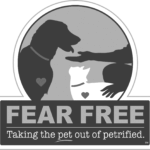The Burt’s and The Bees
November 9, 2013
These days, so many clients are seeking natural foods, remedies and supplements for their pets (and for themselves!) I’m on board with this trend, to a degree: the 2-leggers in our house are vegetarians, and we try and eat mostly organic, unprocessed foods. The Dr D pets eat quality foods, with minimal additives and simple ingredients. I seek out health and beauty products given high ratings by the Environmental Working Group’s Skin Deep website (a non-profit science-based environmental group which tests household and beauty products for ingredients known to be toxic to humans.)
One of my favorite companies is Burt’s Bees, a pioneer in the natural beauty product arena. (Anyone who knows me knows I always have a Burt’s Bees chapstick in my lab coat, and purse, and gym bag, and stashed in drawers throughout my house. I have them everywhere!) Recently, Burt’s Bees launched a line of canine grooming products, including shampoos, tear stain removers and soothing anti-itch sprays. For dog owners seeking more natural grooming products, I think these fit the bill. And, having sniffed a few at the local pet store, I can verify that they smell great!
It is important to note that the word “natural” has no official meaning with either the FDA, so it’s important to read label ingredients carefully. (A large number of human foods bearing the “natural” claim have recently changed their labels, after lawsuits have been filed challenging the “naturalness” of these products.) Natural pet grooming products, while suitable for maintenance grooming in healthy pets, are not appropriate to treat underlying dermatological conditions such as skin and ear infections. To diagnose and treat these common canine problems, please schedule an appointment for Fido with your friends at Newtown Square Veterinary Hospital.
It should be said that, while I am a fan of the clean living movement, I am also a fan of science, medicine and research. We don’t have many, if any, scientific studies to support the health claims made on many of the natural products, foods and supplements sold today. The FDA does not study or test any items in the supplement/vitamin aisle at the drugstore or grocery store, so it’s anybody’s guess if these products contain effective amounts of active ingredients. Pet foods, if they play the label game correctly, can say virtually anything about being “hypoallergenic”, or “for urinary tract health”; sadly, these claims do not have to be supported by any scientific research.
There are many instances where the “natural” solution to a problem simply doesn’t work. The most obvious example of this is using garlic, brewer’s yeast, rosemary or lavender to prevent fleas and ticks. If these products worked, we would all be using and recommending them! This is a perfect example of when the modern, pharmaceutical preventative measure is the only effective one (and a definitively safe one, proven via rigorous studies required by the FDA and/or EPA.) There is substantially more risk for developing tick-borne illness then there is from using topical parasite prevention.
The simple message here is to use common sense, read labels, and choose products and foods that best suit your lifestyle. It’s essential to understand that “natural” isn’t always better (hey, arsenic and carbon monoxide are natural, right?) It’s also important to understand the lack of data on many natural products, remedies and pet foods, and the lack of governmental oversight in these areas. Veterinarians strive to make decisions and recommendations for our patients based on scientific, peer-reviewed data. We don’t discount that some natural remedies may work, but we are hard-pressed to recommend treatments that haven’t been researched and published. Nature and science can co-exist in harmony!



